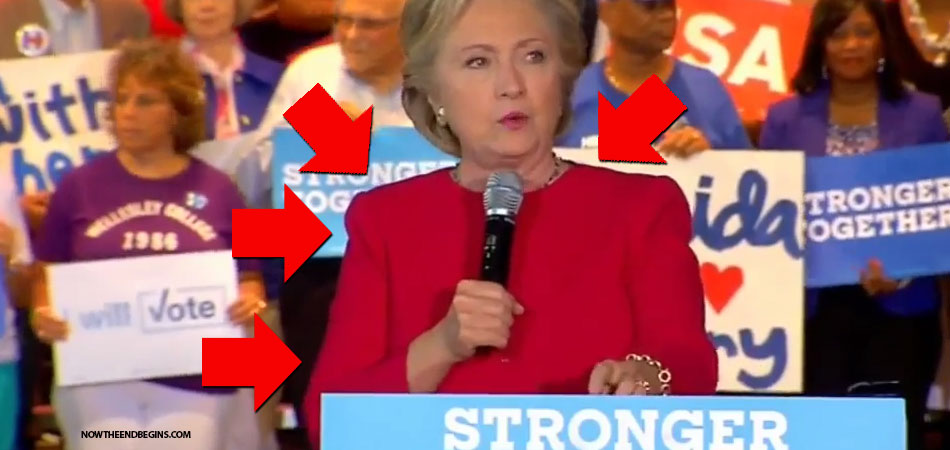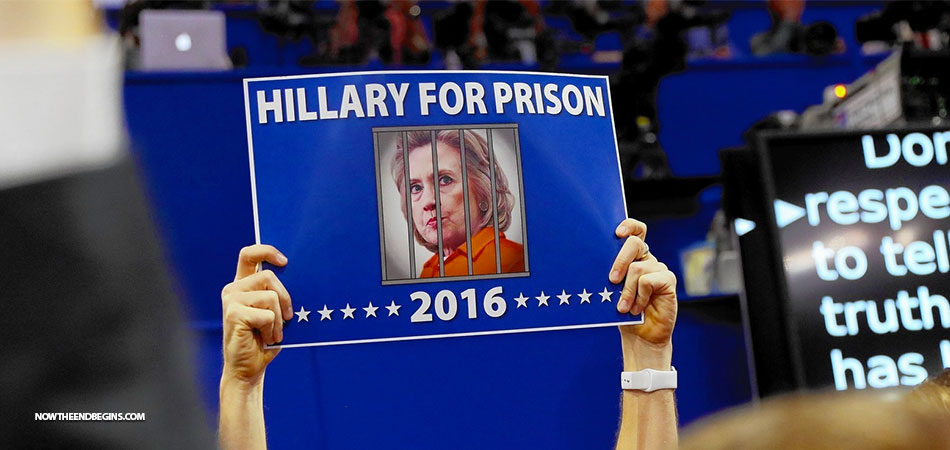Advertising
How Stores Use Your Phone’s WiFi To Track Your Shopping Habits
Every smartphone these days comes equipped with a WiFi card. When the card is on and looking for networks to join, it’s detectable by local routers. In your home, the router connects to your device, and then voila — you have the Internet on your phone.
Recommended Reading: The Mark of the Beast and the Implantable RFID Chip
Here are some of the things the owner of a brick-and-mortar store is in a position to learn about his business these days, as Jules Polonetsky, the director of a Washington think tank, told me recently:
The average wait time at the back register is two minutes. Half of your customers have been in your store twice in a week. Ten percent of the people who come in your store never come near a register, meaning they don’t buy anything. There are a lot of people not finding what they want. The big promotion on the east side entrance of your store was more successful at bringing people to purchase than the promotion on the west side of your store. Here’s the hotspot in your store that draws the most users. The typical user comes in and purchases one thing. Ten percent of your users have been at more than one of your stores.
The list of insights is staggeringly specific, made possible by combining commercial ingenuity with an everyday technology that was never intended to be used this way.
Location services company Navizon has a new system, called Navizon I.T.S., that allows tracking of visitors in malls, museums, offices, factories, secured areas and just about any other indoor space. It could be used to examine patterns of foot traffic in retail spaces, assure that a museum is empty of visitors at closing time, or even to pinpoint the location of any individual registered with the system. source – Tech Review
Every smartphone these days comes equipped with a WiFi card. When the card is on and looking for networks to join, it’s detectable by local routers. In your home, the router connects to your device, and then voila — you have the Internet on your phone. But in a retail environment, other in-store equipment can pick up your WiFi card, learn your device’s unique ID number and use it to keep tabs on that device over time as you move through the store.
This gives offline companies the power to get incredibly specific data about how their customers behave. You could say it’s the physical version of what Web-based vendors have spent millions of dollars trying to perfect — the science of behavioral tracking.
Thousands of customer interactions a day are logged and uploaded to the databases of third-party companies that specialize in retail analytics. Estimates vary as to how big this industry is, but according to Polonetsky, nine major players account for the vast majority of tracking activity. Others estimate there could be as many as 40 major and minor firms.
Here’s how it works. To distinguish themselves from other nearby devices, all WiFi or Bluetooth-enabled gadgets come with something called a MAC address. It’s a unique, 12-digit code that helps routers send data to the right recipient. (MAC addresses have nothing to do with Apple, although Apple products that ship with wireless components come with them.) By logging the MAC address, companies can identify individual devices.
In general, no personally identifiable information can be gathered this way, says Stillman Bradish, co-founder of The Wireless Registry, a D.C.-based start-up that designs ways for consumers to opt out of the tracking. But, he added, as with any type of metadata, it’s easily possible to cross-reference it with other forms of public or commercial information. The resulting data slurry can help firms build detailed profiles of consumers, even if the consumers themselves remain anonymous.
Thwarting this tracking yourself can be impractical. One option is simply to turn off your wireless cards whenever you enter a store. But that might still not prevent a retailer from snatching your MAC address while you’re walking by the promotion in the window outside. Some retail analytics companies — including New York-based Nomi, which this week raised $10 million in venture capital — offer an opt-out function on their Web sites where you can type in your MAC addresses and state your desire not to be tracked. Doing this for every device you own can be exhausting, however. And some retail analytics companies don’t provide the opt-out feature.
That’s where Bradish and The Wireless Registry’s other co-founder, Patrick Parodi, come in. Together with the Future of Privacy Forum, the two hope to build a kind of central Do Not Call list for MAC addresses. At least in theory, consumers will be able to visit a single Web site, register their MAC addresses for free, and the major tracking companies that have committed to the project will pledge not to follow those addresses around brick-and-mortar stores. It’s a form of potential self-regulation that should look familiar if you’ve been following the debate over online tracking, where Web browsers have begun letting users tell commercial Web sites they don’t wish to be followed.
“This database is going to allow these signals to be identified — it’s going to allow people to take control over their proximal identities,” said Parodi, referring to the way offline tracking depends on a person’s nearness to a store rather than their exact location as divulged by their mobile communications traffic.
The registry is set to launch within the next few weeks; Polonetsky says he’s still hammering out the agreement among the analytics companies, and that The Wireless Registry’s idea is one of a number of technologies that could ultimately power the list. But the real question isn’t when the registry will arrive; it’s whether it’ll work. There’s no law that compels companies to obey the list, so when you hand your MAC address to the retail analytics companies, you’re as likely to be doing their jobs for them as you are to be insulating yourself, says Chris Calabrese, a privacy lawyer with the American Civil Liberties Union.
“The danger is that it leads to more tracking rather than keeping you from being tracked,” he says, adding that even if the companies that agree to honor the list stand by their word, others may not be so scrupulous if the registry happens to leak.
Earlier this year, Sen. Chuck Schumer (D-N.Y.) took aim at cellphone tracking and demanded the Federal Trade Commission take on the practice. For its part, the FTC has said it is interested in regulating commercial tracking, including on mobile devices.
Meanwhile, although consumers might blanch at the idea of their proximal identities being used for advertising purposes, Parodi argues that the technology might become beneficial in other ways, particularly if the balance of power were returned to the consumer. He and Bradish have patented their idea for a MAC address registry and envision a kind of “proximal API” that will allow app developers to detect nearby signals and trigger an action — without the need for an active Internet connection, as many current geolocation services require.
“It’s about asking, ‘What are you near?’ as opposed to ‘Where are you?’ ” says Parodi. “If you have a MAC address and are willing to take advantage of that, you can engage with your surroundings in powerful ways.” source- Wash Post

Advertising
The Secret Your Cellphone Company Doesn’t Want You To Know
The truth is, the major cellphone company carriers are more than happy to sell your information to advertisers and serve you targeted ads over their networks. I’m going to tell you how to stop them

Recently, AT&T surprised everyone when it added a new option to its GigaPower fiber Internet service: privacy. Yes, for just $29 more a month, AT&T promises it WON’T sell your search and browsing history to advertisers. How generous.
While there’s still some doubt about how private your information is even after you pay the $29, at least AT&T is being honest about how it finances operations. The truth is, the major cellphone carriers are more than happy to sell your information to advertisers and serve you targeted ads over their networks. I’m going to tell you how to stop them, and at the end I’ll discuss other ways carriers and advertisers are working to get your information.
iPhone
If you’re an iPhone user, go into Settings, and then tap Privacy. Scroll all the way down to Advertising. You’ll see a button that says “Limit ad tracking.” Slide this button to make it green. This will stop ad companies from tracking what you do with your phone and from serving up targeted ads.
Right underneath that setting, by the way, you’ll see the “Reset Advertising Identifier” option. Tapping on that will zero out the anonymized identifier linked to your personal data on Apple’s servers.
In other words, to trackers you’ll appear to be a new user. This can make it more difficult (but not impossible) for advertisers to build up a profile on how you browse.
Android
To turn off the Google “AdID” system, do NOT go to your Android phone settings. Go instead to your Google Settings app. (You may have to look under your full list of apps to find it.)
Once you’re in Google Settings, tap the Ads link and then tap “Opt out of interest-based ads.” You can also see your advertising ID and tap “Reset advertising ID” to make a new one. This will make you look like a new user to advertisers.
Ads aren’t the only way you’re tracked on your phone. Google and Apple might be tracking your searches. Use this search app instead to make private searches.
Windows Phone
To turn off Personalized ads in Windows Phone, go to Microsoft’s ad opt-out page, and under “Personalize ads whenever I use my Microsoft account,” click “Off.”
You will need to be signed in with a Windows account to do this. Make sure you sign in with the same account you use on your Windows Phone. This also turns off personalized ads for Internet Explorer in Windows 8.
The future of tracking
Of course, carriers are working on ways to track you that you can’t stop. Verizon and AT&T have experimented with “supercookies” that let any website know who you are when you visit.
AT&T eventually dropped the idea when customers complained, but Verizon still does it. You can opt out at https://www.verizonwireless.com/myprivacy/, so Verizon won’t track your information or show you targeted ads. But Verizon still adds the supercookies to your browsing, which can give away your identity to websites or hackers.
One solution is to use Wi-Fi instead of your cellular signal for browsing, but that isn’t always possible. Click here to learn more about Verizon’s supercookie problem and how you can protect yourself.
Tracking and selling your information isn’t just a problem with cellular carriers, though. There are ways every ad company can track where you go online. Click here to protect your privacy against online advertisers.
You should also know that Facebook shares your information with advertisers as well. Click here to stop Facebook from tracking everywhere you go online. source – Fox News Kim Komando
Advertising
Netanyahu Launches Bold Anti-ISIS Likud Campaign Ad (VIDEO)
Netanyahu’s new ad ad shows a group of ISIS terrorists pulling up to a random Israeli to ask how to get to Jerusalem. “Take left,” they’re told.

“It’s either us or them. Only the Likud. Only Netanyahu.”
In the latest Likud ad for the upcoming Israeli elections, a group of ISIS terrorists (played by actors, of course) are seen asking for directions to Jerusalem. Likud is led by Prime Minister Benjamin Netanyahu. Elections there are a month away.

The Hebrew writing in the above photo means “The left will surrender to terror”. This is a true statement in nearly every country on the face of the earth.
The ad shows the group of terrorists pulling up to a random Israeli to ask how to get to Jerusalem. “Take left,” they’re told. The screen goes dark and Hebrew words appear as gun shots can be heard. “The left will surrender to terror,” the text on the screen reads.
As the ISIS terrorists pull away, the viewer gets a glimpse at a bumper sticker on the back of their Toyota truck. It reads, “Just not Bibi.”
The ad ends and the Likud slogan appears: “It’s either us or them. Only the Likud. Only Netanyahu.”
Translation of the ad is courtesy of the Independent Media Review and Analysis.
Advertising
New Tylenol Commercial Showcases Lesbian Mothers In A 4-Way Blended Family
Tylenol’s new television ad campaign is called “For What Matters Most”, and features a variety of families such as this blended family of lesbian mothers.

This is the Beser Carr Schneider Musich Family’s story
“For this cause God gave them up unto vile affections: for even their women did change the natural use into that which is against nature:” Romans 1:26
For 60 years, the makers of TYLENOL® have helped to care for families. To celebrate the holidays this year, the makers of TYLENOL® decided to put a modern spin on Norman Rockwell’s classic holiday painting Freedom From Want, to help illustrate how modern families come together to celebrate what matters most during the holidays. This is the Beser Carr Schneider Musich Family’s story:
Tylenol’s new television ad campaign is called “For What Matters Most”, and features a variety of families such as this blended lesbian family see in the video above. It is all part of the relentless push by the Liberals make homosexual family life seem as normal as possible. One look at this commercial and it appears as anything but “normal”.
Using the all-American imagery of Norman Rockwell is another slap in the face at mainstream America, and it’s values and religion so hated by the Left. But, as always, it’s the children who pay the price. Imagine the confusion generated by growing up in this family.
-

 George Soros7 years ago
George Soros7 years agoProof Of George Soros Nazi Past Finally Comes To Light With Discovery Of Forgotten Interview
-

 Election 20167 years ago
Election 20167 years agoDEAD POOL DIVA: Huma Abedin Kept Those Hillary Emails That The FBI Found In A Folder Marked ‘Life Insurance’
-

 Election 20167 years ago
Election 20167 years agoCrooked Hillary Campaign Used A Green Screen At Today’s Low Turnout Rally In Coconut Creek FL
-

 George Soros7 years ago
George Soros7 years agoSORE LOSER: George Soros Declares War On America As Violent MoveOn.Org Protests Fill The Streets
-

 Donald Trump7 years ago
Donald Trump7 years agoDonald Trump Will Be 70 Years, 7 Months And 7 Days Old On First Full Day In Office As President
-

 Headline News7 years ago
Headline News7 years agoIf Hillary Is Not Guilty, Then Why Are Her Supporters Asking Obama To Pardon Her? Hmm…
-

 Election 20167 years ago
Election 20167 years agoWikiLeaks Shows George Soros Controlling Vote With 16 States Using SmartMatic Voting Machines
-

 End Times7 years ago
End Times7 years agoFalse Teacher Beth Moore Endorses The Late Term Partial-Birth Abortion Candidate Crooked Hillary










































































